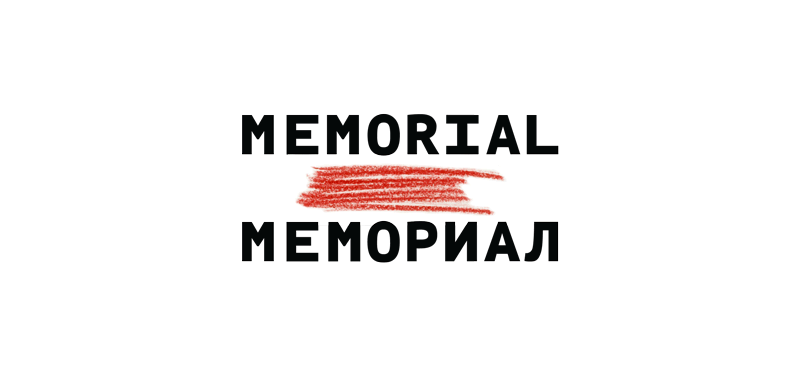
On 9-10 October 2013 I attended a one-of-a-kind workshop presented by Paula Scher of Pentagram and hosted at the Gestalten space in Berlin. Together with six other designers from all over Europe, we were tasked with ‘creating a liquid visual identity‘ over the course of several hours, the liquid identity being Paula’s definition of a visual concept of a brand identity that is easily recognisable and identifiable with the client, yet not based on a set of ready-made solutions, much rather is a number of graphic principles that make it capable of being easily adapted to any use, including web and animated media, apps, environments, print and products.
As a starting point, prior to the event all participants were asked to choose a non-profit organisation to design for. The rules are available from the Gestalten website as they were laid out for us. I challenged myself to pick the non-profit with a flourishing identity crisis and massive financial problems, the Memorial Society. Due to faultering state of civil rights in Russia, Memorial is always on the news and it’s hard to ignore the problems they are facing. I found the task incredibly interesting because of a delicate, highly emotional and at times gruesome subject matter it deals with.
9-10 октября 2013 года я приняла участие в беспрецедентном Берлинском воркшопе издательства Гештальтен, проводившемся Полой Шер, одним из партнеров крупнейшей независимой дизайн-студии в мире, Пентаграм. В компании шести других участников из стран Западной Европы я несколько часов работала над системой визуальной идентификации, которой Пола дала термин текучей айдентики — системы визуальной идентификации, которая не только легко узнается и точно отражает деятельность компании-клиента, но вместо формальных графических ходов опирается на ряд системообразующих принципов, благодаря которым она может быть легко адаптирована для маркировки любых, как статичных, так и анимированных, носителей, сред и продуктов.
В качестве отправной точки Пола Шер предложила участникам до начала работы выбрать по нон-профиту, то есть некоммерческой — благотворительной — организации, для которой будут разрабатываться их проекты. Мой выбор пал на Общество «Мемориал» — организацию, занимающуюся одними из самых сложных и актуальных тем, и, к тому же, переживающую сложные времена из-за законов об НКО и иностранном финансировании, о клевете и фальсификации истории. Общество и идеологически, и структурно необычайно многогранно, а тема, которой оно посвящает свою бесценную деятельность, тяжела и деликатна.

Terrifyingly, no one still knows how many people died during Stalin’s Great Purges in 1930–1940s. Memorial tries to find out. They search for mass graves, publicise the records disclosing the names of thousands shot to death, and details on millions deported.
Memorial is a historical, educational, human rights аnd charitable society that keeps track of political repressions that took place in the Soviet Union. It also educates about terror and state, monitors human rights in Russia today to make sure the story won’t repeat itself, and helps the victims. Memorial is a non-profit, so it depends heavily on donations. According to their Charter, they have four branches—History, Education, Human Rights and Charity—that at times are in conflict between each other, yet are not branded clearly enough for viewers from the outside to notice.
The visual language at the basis of the identity is inspired by official documents of the 1930s and 1940s era.
It’s typewriter-printed pages signed by, crossed out, underlined, marked and scribbled on with a colored pencil.
These papers remind of how easily an innocent person could be sentenced to death with a single pencil stroke, and how the future of an entire minor ethnic group could be ruined by a single-page document.
Сложно поверить, но никто даже приблизительно не знает, сколько людей погибло в результате Большого террора: оценки разнятся на десятки миллионов. Сотрудники «Мемориала» своими руками раскапывают бездонные коллективные могилы, в которых сбрасывали растрелянных, и по крупицам собирают доступные документы из секретных прежде архивов.
Общество «Мемориал» — это историческая, образовательная, правозащитная и благотворительная некоммерческая организация, которая противостоит историческому ревизионизму, собирая и распространяя факты об истории политических репрессий в Советском Союзе, а так же вносит свою лепту в содействие правам человека в России сегодня, делая все, чтобы история не повторила себя. Общество существует на средства от грантов и пожертвований; у него множество международных и региональных филиалов, и очень сложная структура: существуют, например, «Мемориалы» «правозащитный» и «исторический», — сегодня разница между ними стороннему наблюдателю не понятна.
Визуальный язык, на который опирается система, придуман под впечатлением от официальных документов, которыми враз решались судьбы тысяч людей, перечеркивалась история целых народов, и при этом, за каждым из которых — личные трагедии реальных людей.
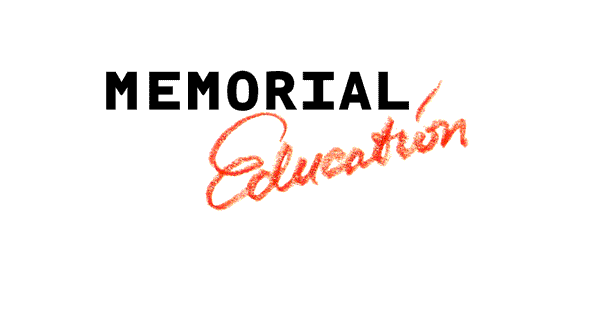





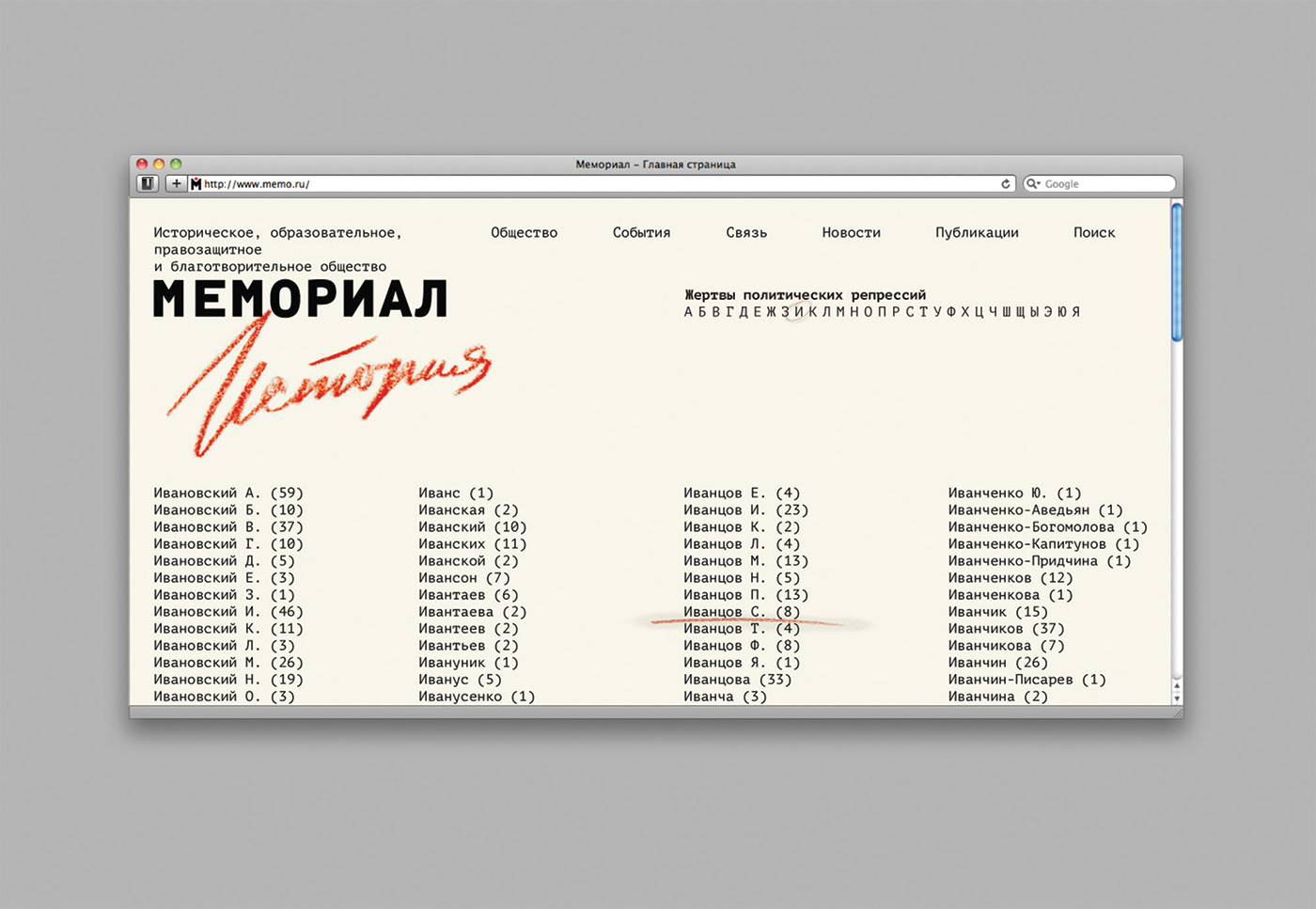
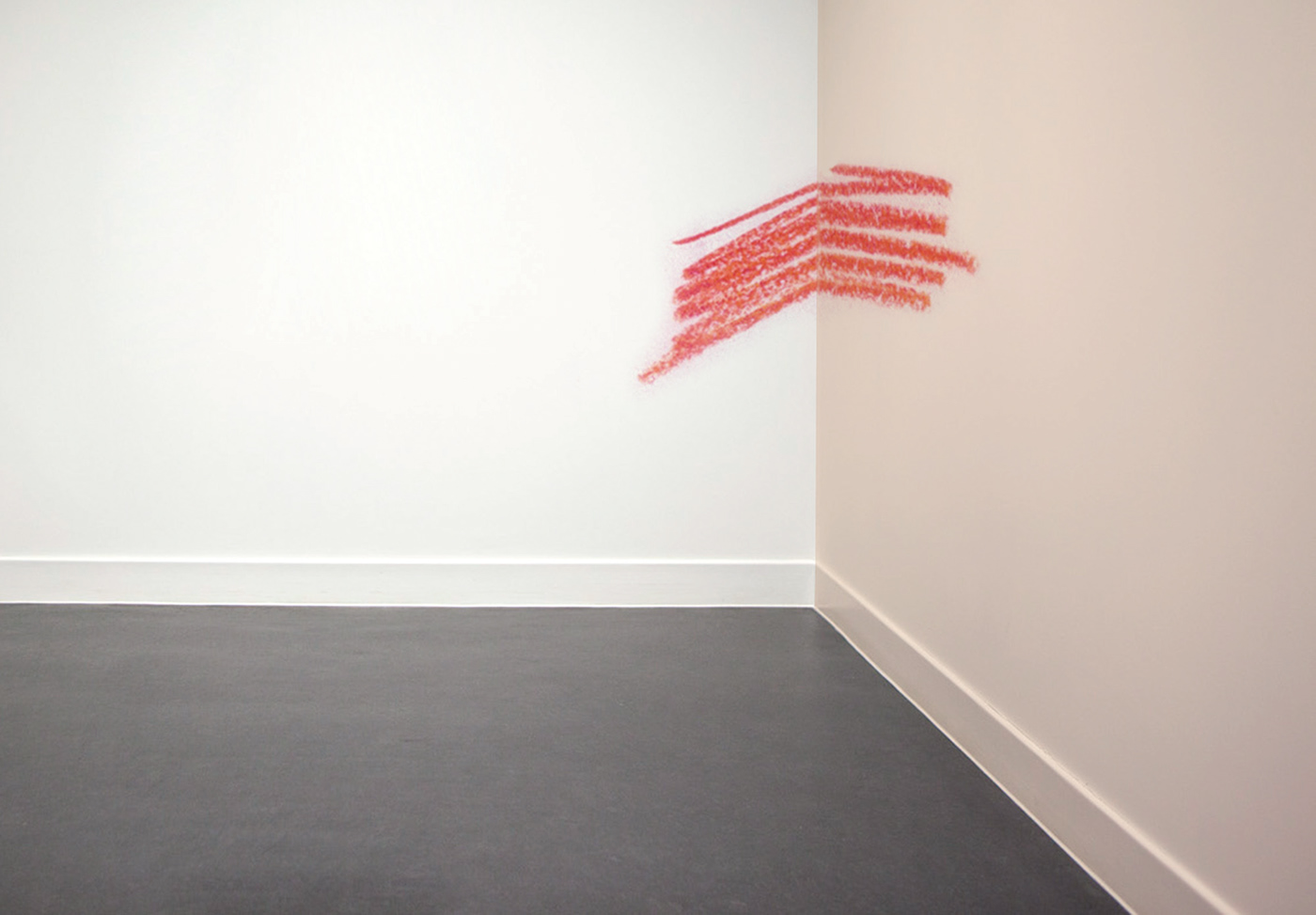
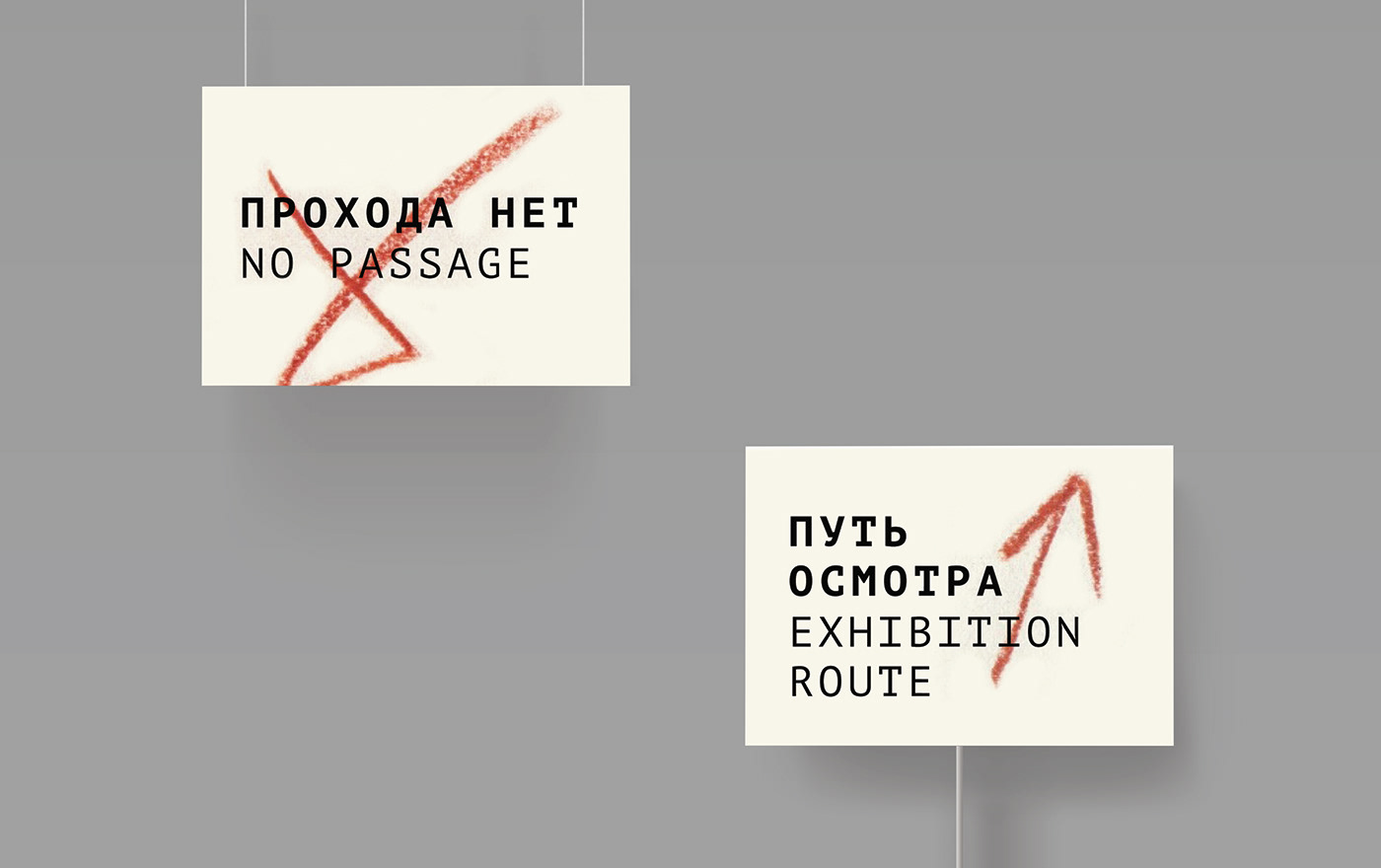




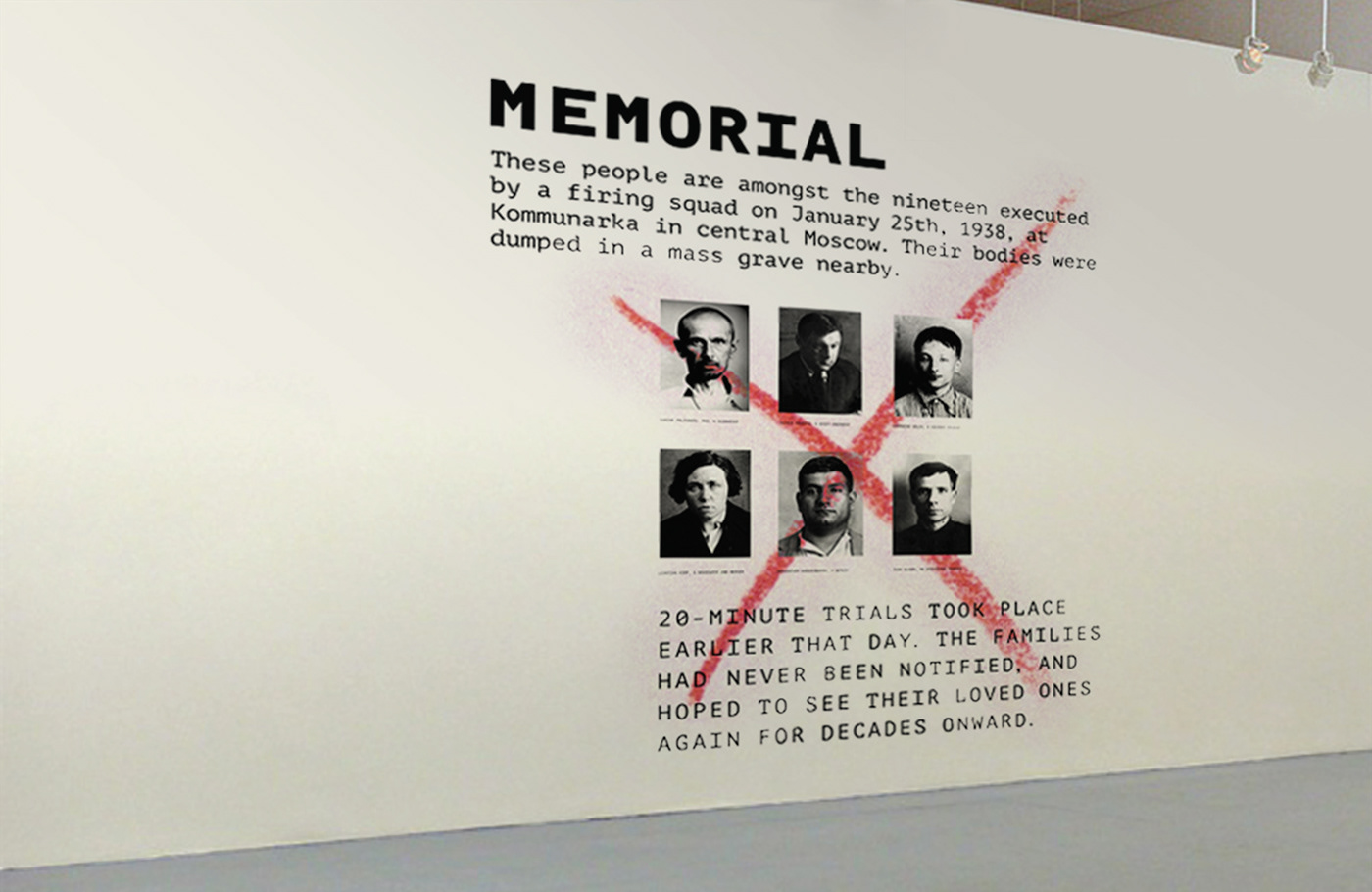
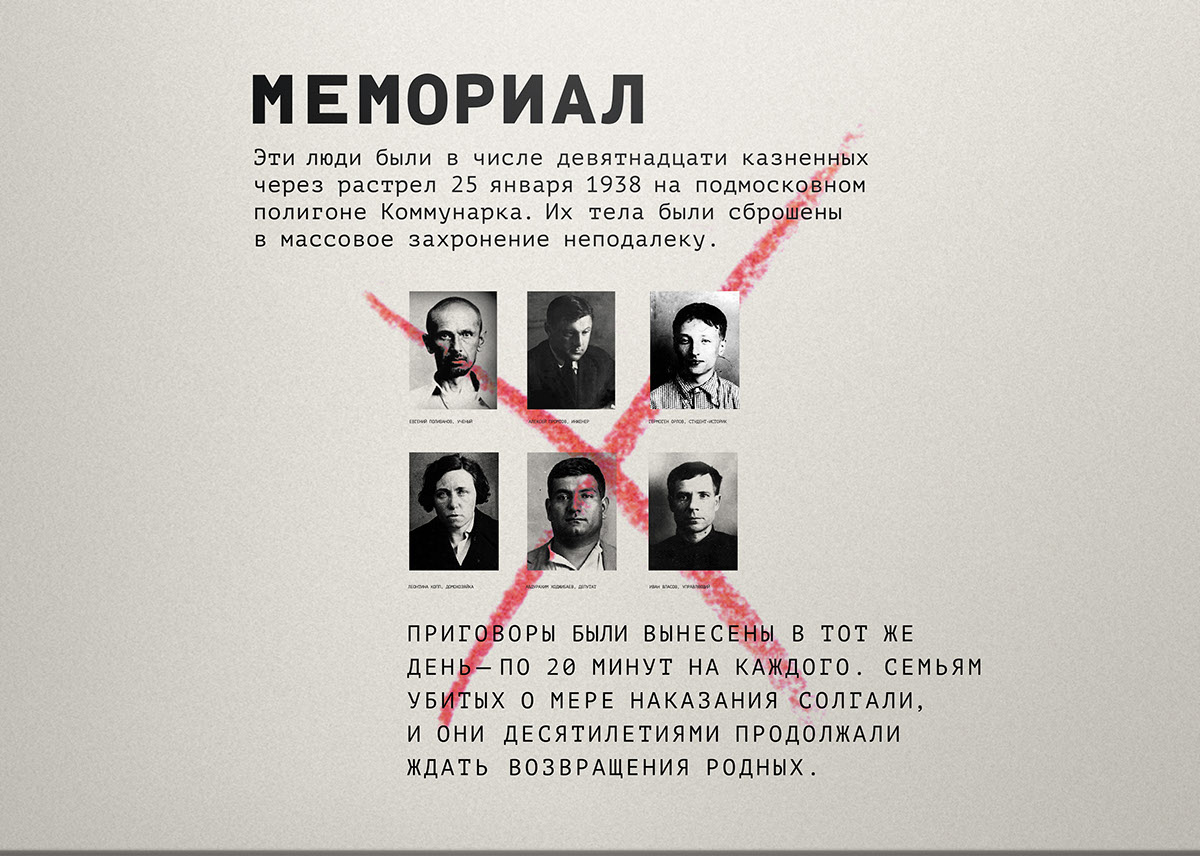



9–10 October 2013
Berlin
9–10 Октября 2013,
Берлин


